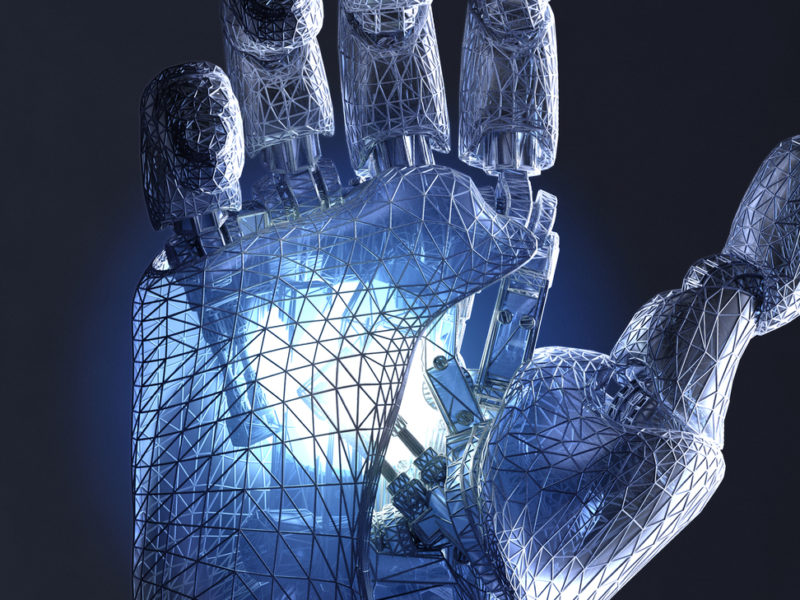Leavitt: Politics Give Way to Sociology in Primary Elections
Salt Lake City—As the race for the Republican presidential nomination rounds into the final lap, the victory is by no means guaranteed to any one candidate.
What does that mean for the nomination and the state of July’s Republican National Convention? Former Gov. Mike Leavitt has some ideas, which he shared with attendees at the World Trade Center Utah and Zions Bank’s quarterly Thought Leader Symposium Tuesday. Leavitt compared the current political situation, especially within the Republican party, to a learning experience akin to the education the country got about the function of the Electoral College during the 2000 presidential election.
“We’re going through a uniquely American experience in democracy. A few years ago, none of us knew anything about the Electoral College. We knew it at a civics level, but we had a very powerful educational experience in the context of the [George W.] Bush-[Al] Gore election. We focused on it, we learned about it; it was relevant to us,” he said. “I would like to suggest that we are going through another part of that process now. We’re going to learn things about the way our democracy works that we did not know before.”
Of the three candidates still in the Republican race—Donald Trump, Ted Cruz and John Kasich—none have yet won the 1,237 delegates necessary to procure the nomination. Even Trump, who holds the clear lead with 739 delegates won so far, would have to win 52 percent of the remaining 959 delegates to secure the nomination.
“The chances that Donald Trump will get 1,237 [delegates] are certainly not zero, but there are very many pathways under which he would not get 1,237,” Leavitt said.
If no candidate gets the 1,237 delegates before the July event, the party will have a contested convention on their hands, Leavitt said, something that has happened only 26 times since political parties began holding conventions—16 times at Democratic conventions, and 10 at Republican.
Leavitt, who has been involved with the chaos that can be a presidential campaign since running strategy and polling for the Northeastern states for Ronald Reagan in 1984, first delved into the question of what happens at a convention without a clear nominee four years ago, working on Mitt Romney’s campaign. In late April 2012, it was still unclear whether Romney could secure enough delegate votes to get the nomination.
A post-election analysis suggested part of Romney’s ultimate loss to Barack Obama was from the length of time that he was the likely nominee but before his nomination was official, thereby giving him access to general campaign funds that could have helped him combat negative messages being broadcast about him by opponents, Leavitt said. As a result, the Republican National Party made several changes to its method of whittling down the field of prospective candidates to one, including compressing the primary elections and moving up the convention from September to July, as well as reducing the number of debates in hopes of limiting the inter-party acrimony between candidates.
Unfortunately, Leavitt said, the changes have not performed up to the party’s expectations because of several unforeseeable factors in this election.
“What they did not anticipate, I think it’s clear, is that they did not anticipate Donald Trump, they did not anticipate that they would have 17 candidates, and they underestimated, in my view, the new phenomenon in American politics, the Super PAC,” he said. “The Super PAC means that one person or a handful of people can contribute very large sums of money and keep candidates in the race longer than the time they would normally be there.”
Another unexpected factor in this election, Leavitt said, was the sociological impact on the politics of the primary election for both parties.
“I’m going to suggest that there is more sociology happening right now than there is politics, and if you begin to look at what’s happening with the Republican nomination, and in the Democratic nomination, you see that the politics are really overshadowed by the sociology,” Leavitt said.
He referenced a clip from the 1976 movie “Network,” in which a newscaster directs people dissatisfied with the state of the country and world to go to the window and yell “I’m mad as hell and I’m not going to take it anymore.”
“When you look at that clip, just listen to the message. That was nearly 40 years ago, and yet it’s almost word-for-word the message Donald Trump is delivering, and it’s very clear he has tapped into something deep in the American psyche,” Leavitt said, noting that the sociological phenomenon could be worrisome in the political arena. “We don’t have sociology parties, we have political parties; we’re not going to be electing a chief therapist, we’re going to be electing a president of the United States.”
On the Democratic side, nine times of the 16 the party has had a contested convention, the nominee has been the leading vote-getter; on the Republican side, three of the 10 contested conventions ended up giving the nomination to the leading vote-getter, Leavitt said.
“Why is that? Because typically, for that to occur, the party must not have achieved unity, and the other candidates have not given up, and when you get there, those alliances hold pretty well,” he said.
If Trump were slightly short, say, within 50 delegates, he would likely still be able to get the delegates before the convention, Leavitt speculated, but if the primary elections ended with him being 100 or 150 delegates short, the Republican Party would likely have a contested convention. If no candidate gets the 1,237 delegates, a second vote will be held, and then a third, and a fourth, and so on, Leavitt said. “Between that time, that’s when all the candidates will be looking for ways to take votes from the other sides. That’s when the deals will be made,” he said. “After the first vote, all of the delegates who have been required to vote for a candidate by either the statutes of their state or by the laws of their party then are released.” In that case, Leavitt said, the nomination is up for grabs, with what happened earlier in the primary election cycle meaning a lot less than it did immediately before the convention. Even a candidate like Kasich, currently quietly running his own campaign while Trump and Cruz get the majority of the press, could have a shot at the nomination—Leavitt compared him to Australian speed skater Steven Bradbury, who, in the 2002 Winter Olympics in Salt Lake, trailed behind the three frontrunners of the 1,000-meter race by several meters, only to calmly swerve around a crash on the final turn to nab the gold. While not a particularly likely scenario, Leavitt said, it is far from impossible, given the chaos of the party at the moment. If no candidate ends up getting enough votes as the convention draws on, he said, some of the rules might need to be changed to pick a nominee before the end of the convention.
“That’s when things begin to get interesting, in my view, because if you get close to Saturday [the final day of the convention], that’s when some very mundane details become important,” he said, citing delegates having to get back to work the following Monday or having their hotel reservation run out Sunday. “That’s the moment when you may, in fact, begin to see rule changes being made.”
Though acknowledging that rule changes were highly unlikely, Leavitt said, “We are in uncharted territory here, and I don’t think there’s any clarity other than what the rules are today and the way it’s unfolded in the past, and I think we can all begin to buckle our chin straps and enjoy what I think is going to be a lesson in the way our two-party system works.”





